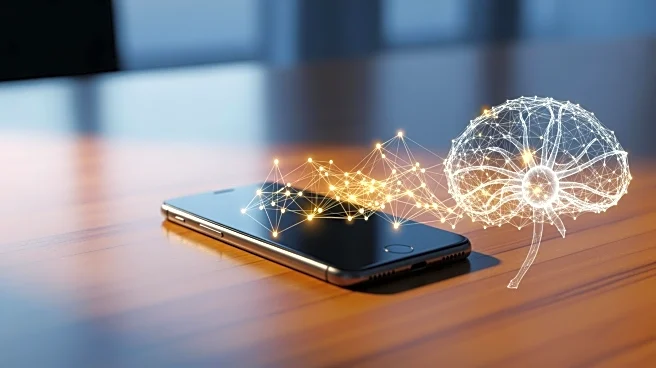What's Happening?
President Trump recently proposed a peace plan for Ukraine, suggesting that both Russia and Ukraine should 'claim victory' to end the ongoing conflict. This proposal was met with resistance from Russian
officials, including Dmitry Medvedev, Deputy Chairperson of the Russian Security Council, who reiterated Russia's demands for Ukraine's full capitulation. These demands include installing a pro-Russian government in Ukraine, ensuring Ukrainian neutrality, and limiting Ukraine's military capabilities. The Kremlin's response to Trump's proposal reflects its longstanding pre-war conditions. Additionally, Russian officials expressed cautious optimism regarding Trump's decision not to provide Ukraine with Tomahawk missiles, although they anticipate continued US weapon deliveries to Ukraine.
Why It's Important?
The peace proposal by President Trump is significant as it attempts to address the prolonged conflict between Russia and Ukraine, which has had substantial geopolitical implications. The resistance from Russia highlights the challenges in achieving a diplomatic resolution, as Russia's demands could undermine Ukraine's sovereignty and security. The decision not to supply Tomahawk missiles to Ukraine may impact the dynamics of military support from the US, potentially affecting Ukraine's defense capabilities. This development could influence US-Russia relations and the broader international response to the conflict, with potential consequences for NATO's policies and regional stability.
What's Next?
The next steps in this situation may involve further diplomatic negotiations, with potential meetings between President Trump and Russian President Vladimir Putin. The Kremlin's demands and the US's military support decisions will likely continue to shape the conflict's trajectory. Stakeholders, including NATO and European countries, may need to reassess their strategies in response to these developments. The ongoing dialogue and military actions will be crucial in determining whether a peaceful resolution can be achieved or if the conflict will persist.
Beyond the Headlines
The ethical implications of the proposed peace plan are significant, as it raises questions about the balance between achieving peace and preserving national sovereignty. The potential installation of a pro-Russian government in Ukraine could have long-term effects on the country's political landscape and its relationship with Western allies. Additionally, the economic impact of the conflict, including fuel shortages and price increases in Russia, highlights the broader consequences of military actions on civilian populations and regional economies.








